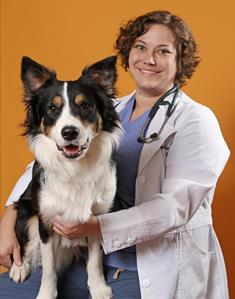Attention pet Rabbit owners! A highly contagious disease caused by a strain of the RHD virus has been infecting and killing both domestic and wild rabbits. It was first detected in the United States in 2018, and has been spreading west to east ever since rapidly.
In fact, Rabbit Hemorrhagic Disease Virus 2 (RHDV2) has now become the most fatal disease afflicting household rabbits. Research has shown as many as 85-95% of those animals exposed resulted in fatality.
But there is hope. A RHDV2 Vaccine developed by U.S. based Medgene Labs has received USDA Emergency Use Authorization. To date, 44 States have received authorization and supplies have started to be obtained. While BMAH is still waiting for our own vaccine supply, please make note of the disease symptoms below and call your family veterinarian as soon as possible if you notice any of the these irregularities:
- Loss of appetite
- Lethargy
- Fever of 104F or higher
- Seizures, weakness, wobbliness and other neurological signs
- Jaundice, or yellowing of the skin and mucosal membranes (most noticeably in the ears)
- Bleeding from nose, mouth, genital openings or rectum
- Difficulty breathing
- Sudden death
Keep in mind as noted above, some rabbits can be asymptomatic and die suddenly from this disease, which makes it all the more necessary that your pet be vaccinated as soon as possible.
RHDV2 Rabbit Vaccination Clinic Notice
 At this time, BMAH can refer clients to a RHDV2 Rabbit Vaccination Clinic in Lebanon, PA (exact location to be announced). Space is limited so please request a Registration Packet from Adventurebunnycares@hotmail.com – Deadline to register is February 25, 2022.
At this time, BMAH can refer clients to a RHDV2 Rabbit Vaccination Clinic in Lebanon, PA (exact location to be announced). Space is limited so please request a Registration Packet from Adventurebunnycares@hotmail.com – Deadline to register is February 25, 2022.
To be fully vaccinated, the rabbit must be available for a two-dose regime, with the first shot on March 6, and the booster on March 17.
The cost is $25 per rabbit which includes both shots plus a $10 donation each visit to help defray the costs of clinic set up and veterinary technician travel expenses.
Vaccination Is the Best Defense Against Spreading RHDV2
Even if an infected rabbit survives the disease, they can continue to shed virus for up to 2 months and infect others. Also troubling is how easily transmissible the virus is in a variety of ways. This virus can live for up to 3 1/2 months in the environment and can easily spread from exposed hay, to migrating birds, or even through treats and toys produced in contaminated areas. RHDV2 is also easily transmitted by “fomite” meaning objects like shoes or clothing and “vectors” like insects, indoor/outdoor pets and car tires that become contaminated with live virus.
In other parts of the world, seasonal outbreaks have been noted. Find more information from the House Rabbit Society here: https://rabbit.org/rhdv/
Use the BMAH Website as an Educational Resource!

Did you know you can now Search our website for particular topics of information and advice? Visit our Learning Center > Search this Site and enter a word or words of the subject you want to learn more about. We are constantly adding new material to our website and improving functionality to help serve you better.
Kim Somjen, DVM, Belle Mead Animal Hospital

Kim Somjen, DVM, Belle Mead Animal Hospital


